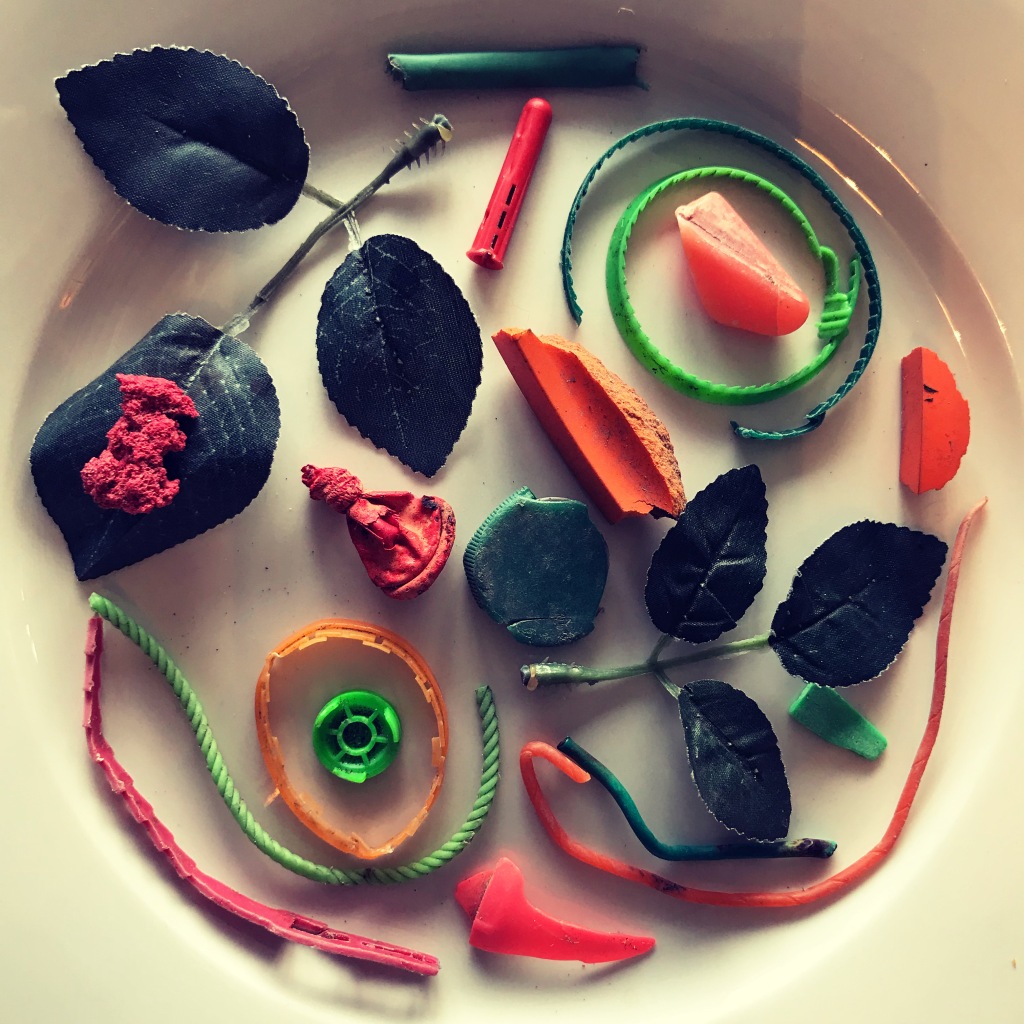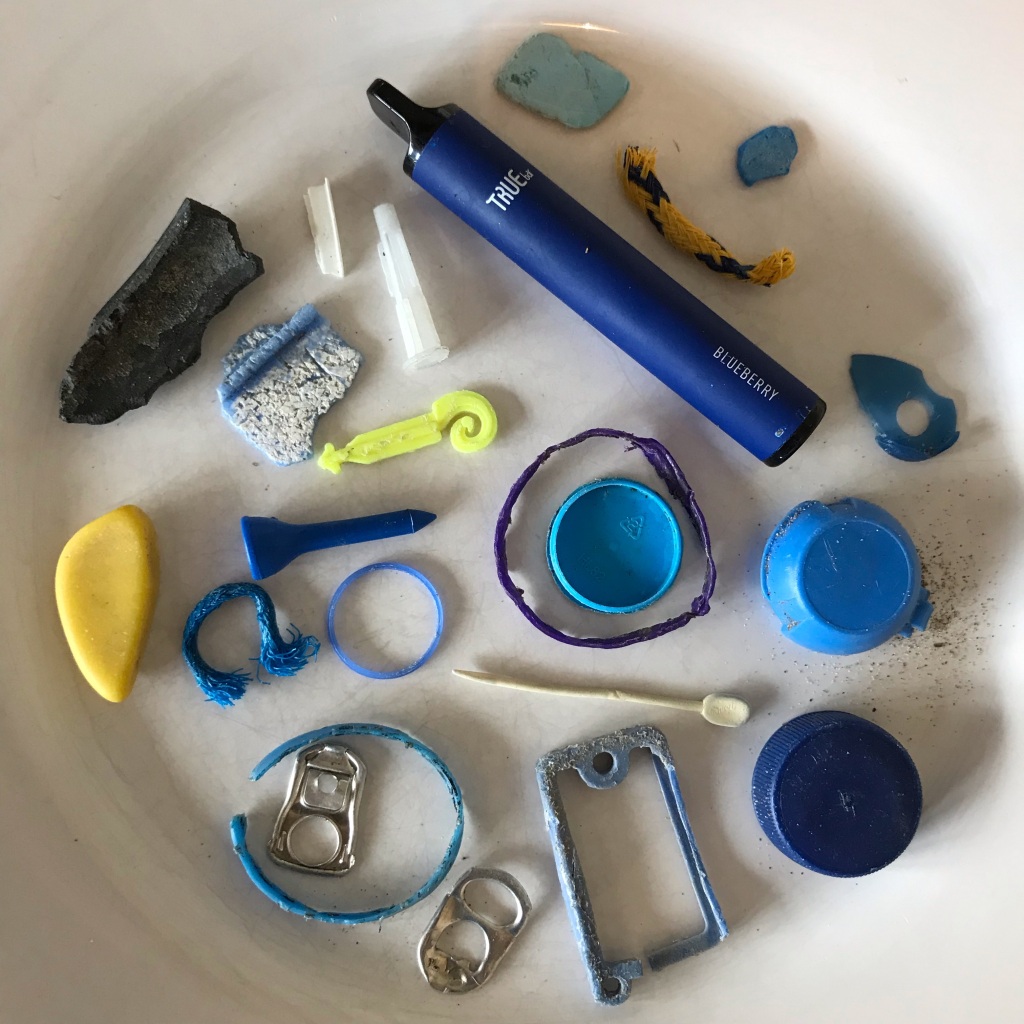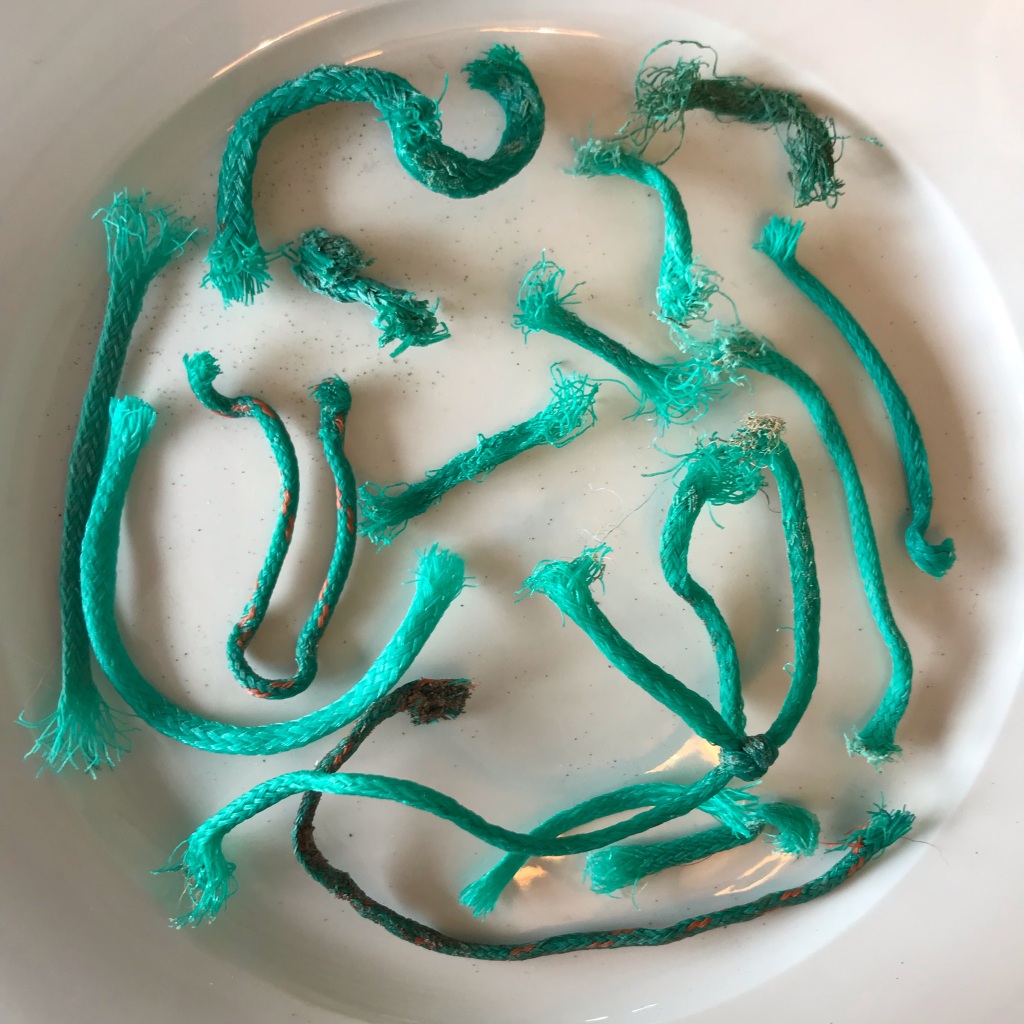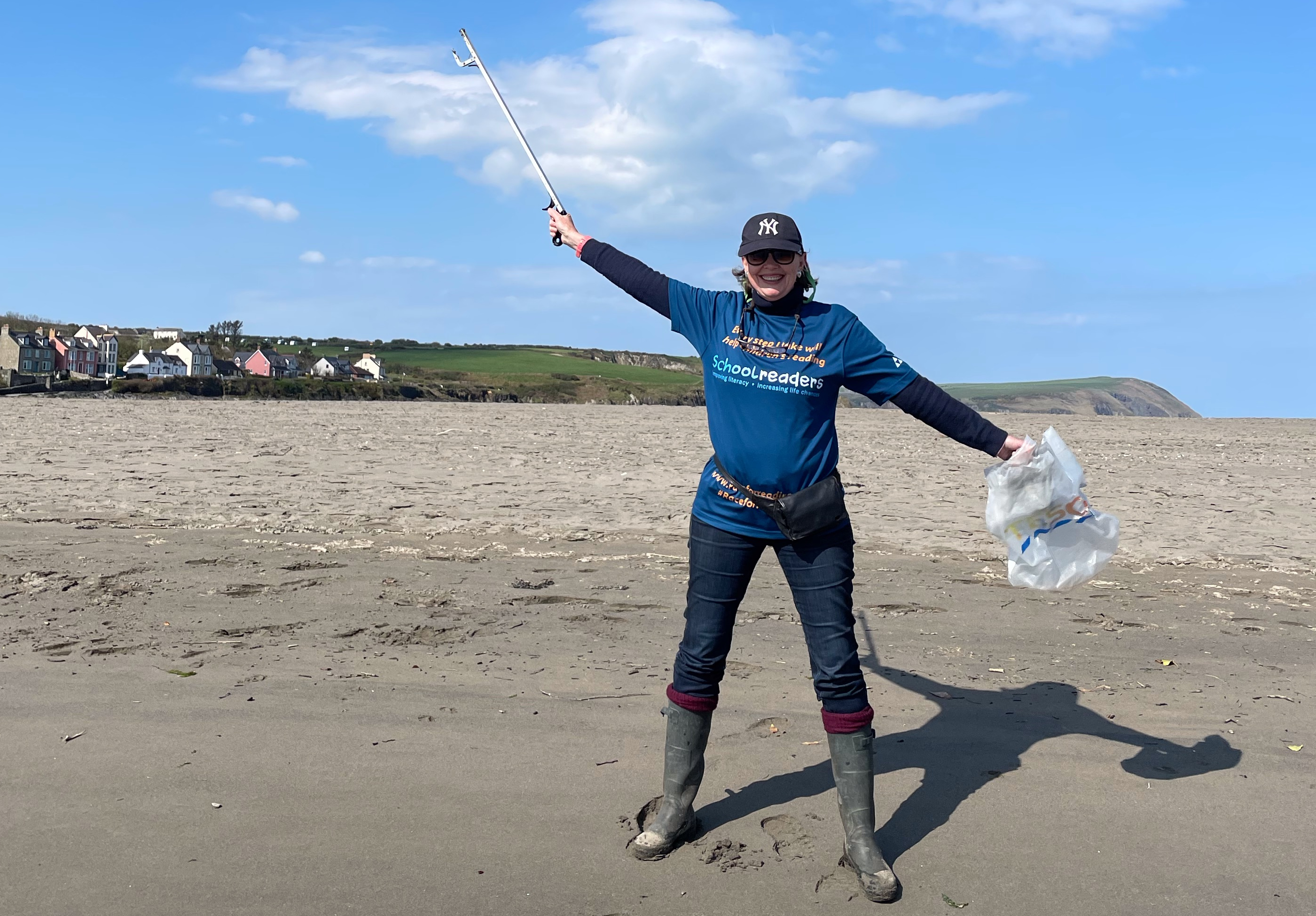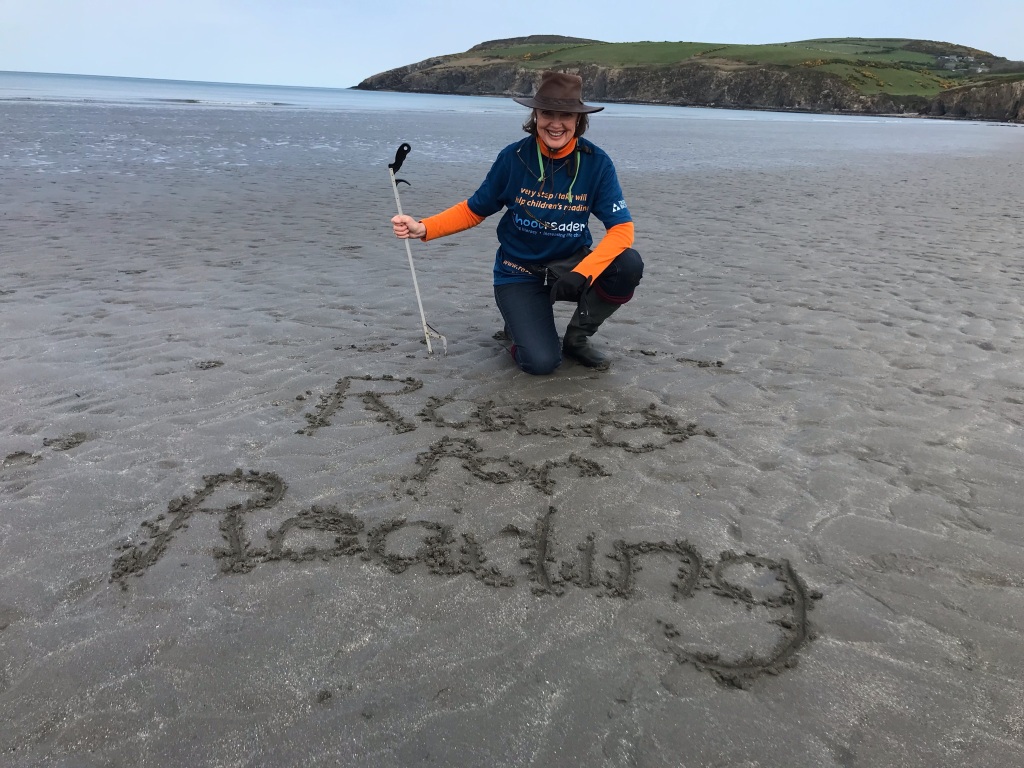The Race for Reading is going well and my litter picking is bearing results.
Schoolreaders is such a great charity. I’m one of their author supporters along with Joanna Trollop and Sophie Kinsella. They have been incredibly supportive, tweeting:
@Sophie_Neville has been an absolute star of #RacefoReading this year! Not only has she collected a massive amount of #litter from our coastlines she’s raised over £550 to support children’s #literacy via #Schoolreaders, which she hopes to get match funded!
An improvement can be seen as I walk the coast collecting plastic pollution, but change is slow. In the last few decades, micro plastics have got everywhere. I list some of the weirdest things I’ve found in the past here.
Day 21 – of my personal challenge
U is for Unbelievable how much litter there is in Britain
Unless each one of us do something useful, we’ll be burrowing through unbearable rubbish. I embark on an uplifting walk of about 12.5kms, up and down the river, collecting useless plastic before it is washed into the unforgiving sea.
It’s not unusual for litter to last for decades. You can see some of the elderly items I’ve found by the coast here.
Day 22 –
V is for Victory
I walk vigilantly along the tideline, through the sand dunes, along the verdant estuary where flotsam gathers, and into town finding very small pieces as I cover 6.5kms.
Day 23 –
W is for Why Worry?
Why use a dog poo bag if you are going to leave it in the countryside? It is worrying. They do not decompose and have been known to kill animals attracted to grain in the dog poo. Foals have died. A vet found 20 dog poo bags in the stomach of a deer.
I wander through tide wrack finding a number of dog poo bags washed up by the sea. How many kill dolphins? I return via the windswept sand dunes crossing an ancient midden or rubbish dump. 4 km + 9km = 13km walked today.
W is for Waterhaul – I use this old feed bucket for collecting litter but it is better to take a bag when it’s windy. You need a strong one that can take broken glass. Waterhaul are making beach clean bags out of old sails and are up-cyling amazing things out of discarded fishing net. You can find their website here.
Day 24
X is for sea Xs – I find a huge number along the coast – the result of torn fishing net being shredded and discarded at sea. It is too costly to mend or dispose of them on land. Theses strands of HDPE (high-density polyethylene) are known as sea-kisses when an X is formed by the knot. Please collect any and report your findings to Marine Management.
I stop for a rest to look back on what’s been achieved, appreciating all the encouragement I’ve been given.
Rebecca Holmes left a message saying: “only 3.5km” only this only that. NO, it’s not only. It’s brilliant, every single step counts.
Liz Downs Wow. This is the first I’ve heard of this. What an achievement ![]()
![]()
Stephen Green Such a worthwhile cause, I commend you Sophie well done, I don’t know where you get the energy from.
Day 25
Y is for Yucky
Are young people to blame or drivers? If you take a lane running alongside your local river, you soon notice that most roadside litter is made up of the bright packaging of things that are bad for people: tobacco, sweets, over flavoured snacks, drugs, sugary carbonated drinks and alcohol. Somehow the caffeine fails to give people the energy to take their rubbish to a bin.
I took part in Keep Britain Tidy’s Great British Spring Clean when we counted cans collected and found twice as many alcohol containers as soft drinks. The highways of Britain are lined with tins and bottles that have been in people’s mouths. What are the consequences?
I walk 1.3km along our tidal river within the National Park, collecting a couple of large bottles that would have been hazardous if flung from a vehicle. These are added to my glass recycling bin, which has become embarrassingly full. I have a container of old oil I do not know how to dispose of. There are two 25 litre drums of chemicals, a car bumper and a metal table lurking in the estuary. I’ve reported them to the Council twice but nothing has been done.
I feel discouraged but am delighted to announce that a colleague from Litter Pickers of The New Forest, renown for covering a huge distance, has signed up for the Race for Reading 2022 and will be picking up the baton. Another volunteer promises to help me extract the fly-tipping and take it to the dump.
Day 26
Z is for Zonked. I’m getting tired but zoom along the shore zealously collecting muddy rubbish and tiny pieces of litter covering 4.1km.
Z is for Zero plastic waste. I sign up for The Big Plastic Count. We have to stop producing so much single use plastic. I’m told that a truckload of rubbish enters the sea every second of everyday. I will continue to pick pieces up from the coast but we have to stop it getting into the sea.
I log my fitness to find I have covered over 78 miles on the Race for Reading 2022. I’ve only collected one wheely bin of litter, a tub of glass bottles and another of tin cans but the coast is clear.
Thanks to my generous sponsors, I’ve raised £445 for School Readers so far. My company will double any money I can raise in sponsorship, so any donations given to School Readers via my Justgiving page will be doubled.
Schoolreaders is a children’s literacy charity which provides volunteers to partner primary schools nationwide to listen to children read. Even before Covid 19, 1 in 4 children left primary school unable to read properly1. Currently, our dedicated volunteers support over 7,000 children every week with one-to-one reading support, boosting their reading ability, fluency, comprehension and enjoyment.
Why Schoolreaders is needed:
- Inequalities in literacy levels have widened since the pandemic. 5-7 year old disadvantaged pupils are 7 months behind non-disadvantaged peers2
- One in seven adults (7 million people) have poor literacy and are unable to fill in a job application form, read a medicine label or understand written instructions. This can affect their mental health, contribute to unemployment, homelessness and crime – 48% of UK prisoners have reading ages of 11 or under.3
- Illiteracy costs the UK economy nearly £40 billion every year.4
- More than 10% of primary schools in England have registered with Schoolreaders to help their pupils catch up on vital reading skills.
For a full list of items I’ve found on beach cleans, please click here.


